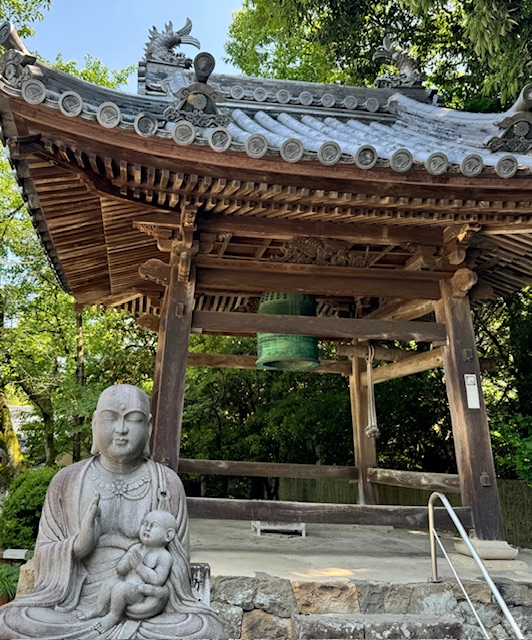Blessed. Uplifted. Encouraged. Internally renovated. That’s how I feel now after my visit to Unpen-ji, temple 66 – at the top of the world. Well, maybe not the world, but certainly the top of Shikoku pilgrimage!
Renovated Tradition
I booked my room at a guesthouse in Toyohama. I wanted to use it as a base for three days to visit temples 67, 68, and 69.
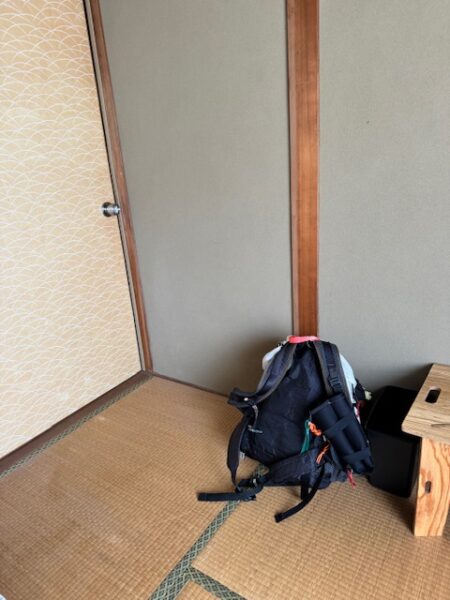
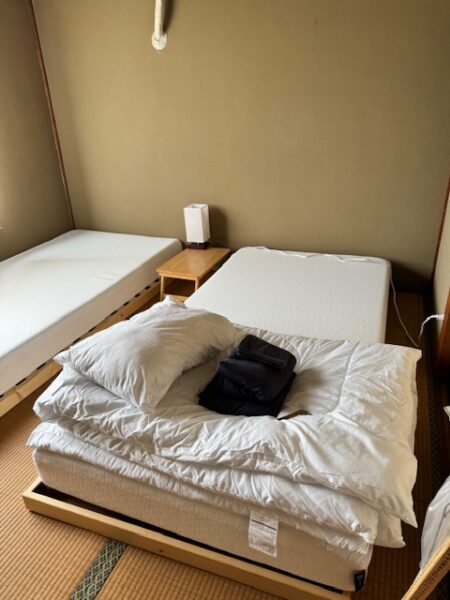
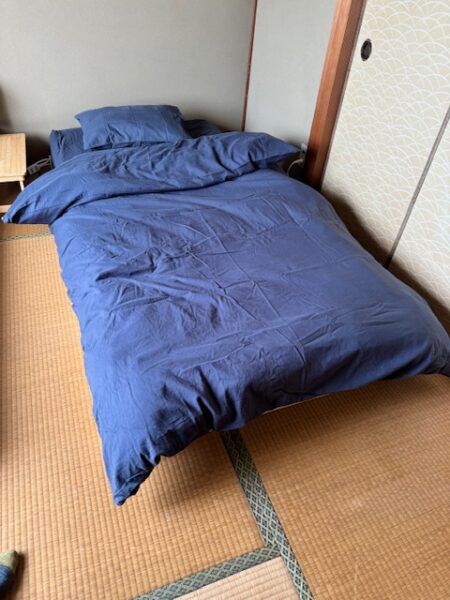
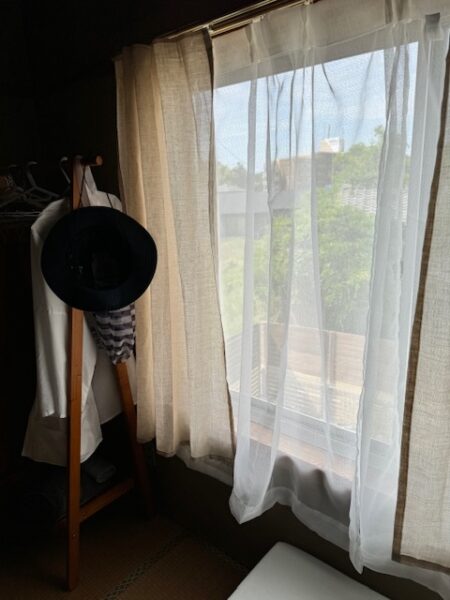
My gracious and ambitious host was in the midst of the guesthouse’s renovation. He was doing it himself, as fast or as slow as his resources allowed. I told him that I was a woodworker, too. He opened up a little and showed me his work throughout the house – the bathroom/shower area, big kitchen, front reception area, and systems! It was a blend of traditional (tatami mats) and modernity (air conditioning) was not leaving much untouched.
We talked a bit about his disappointments and successes. Understandably, it was taking a little longer to complete the project. I thought the renovated spaces were well done.
I met a local man when I was looking for the house the day before. After he learned where I was staying, he walked with me. He was curious about the progress my host was making in the renovation. When we arrived, he “inspected” the work and expressed approval. Before he left, we took the first photo, then he wanted another without his hat!
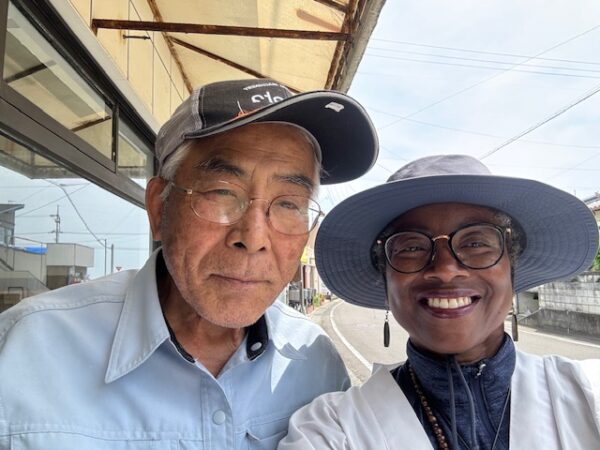
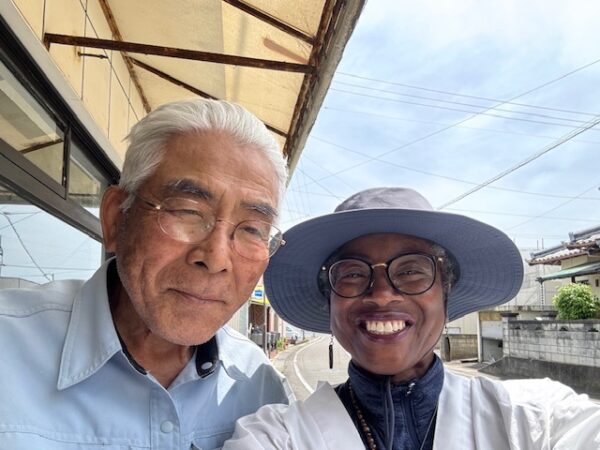
Now, I do detect a smile!
Good night…
… and good morning.
Let’s leave the guesthouse…. and walk for the day.
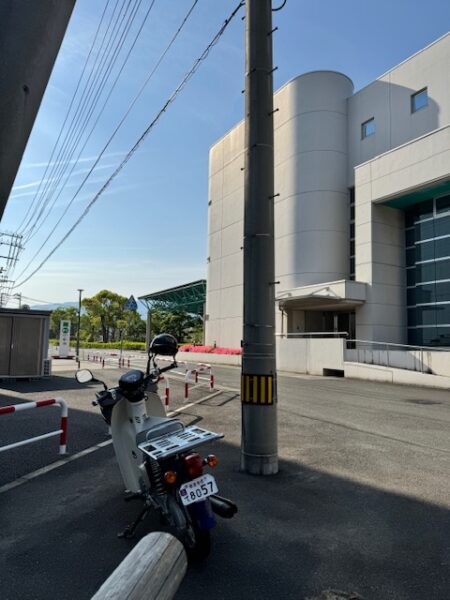
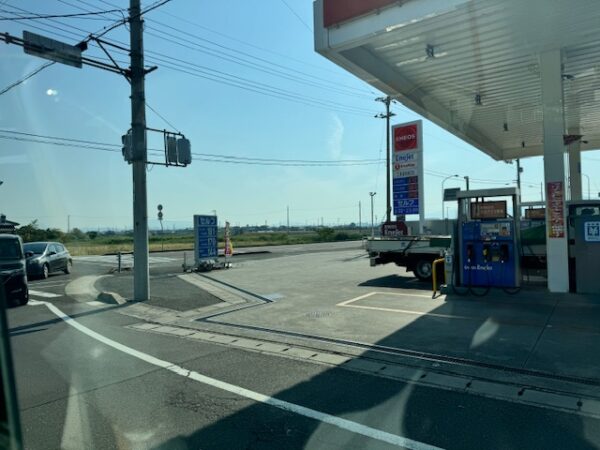
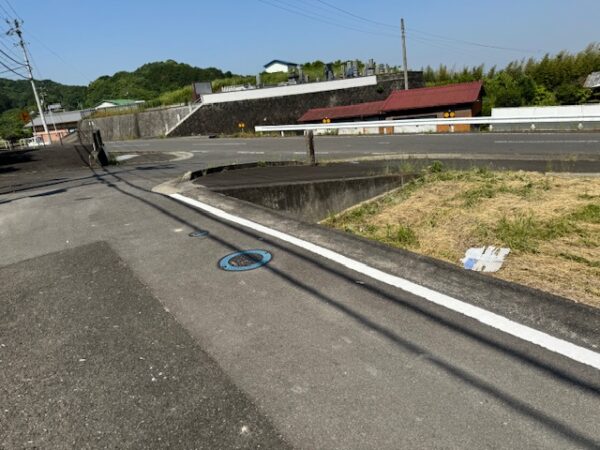
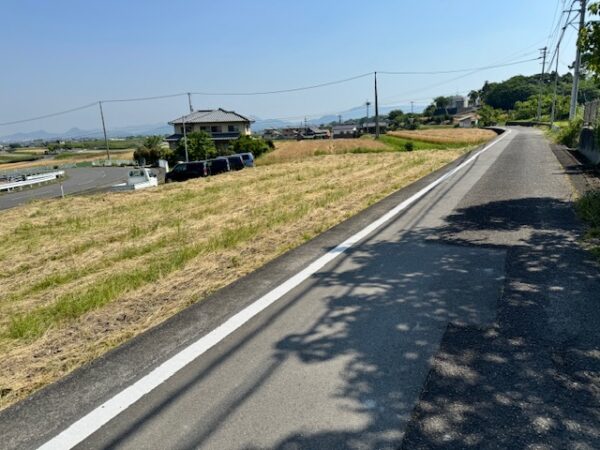
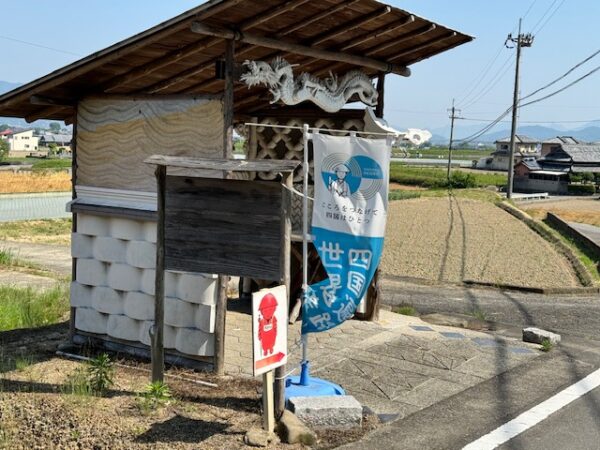
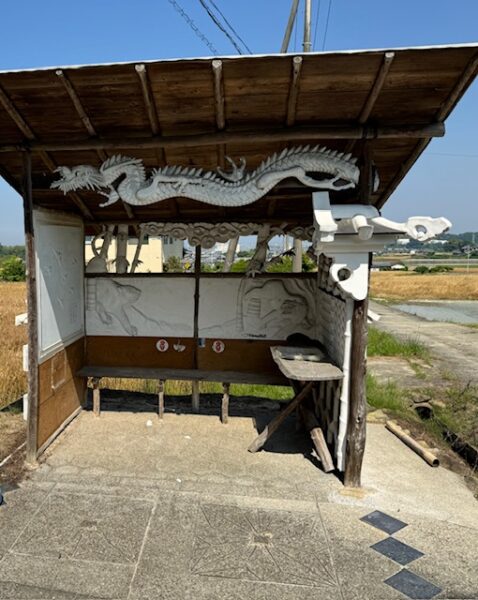
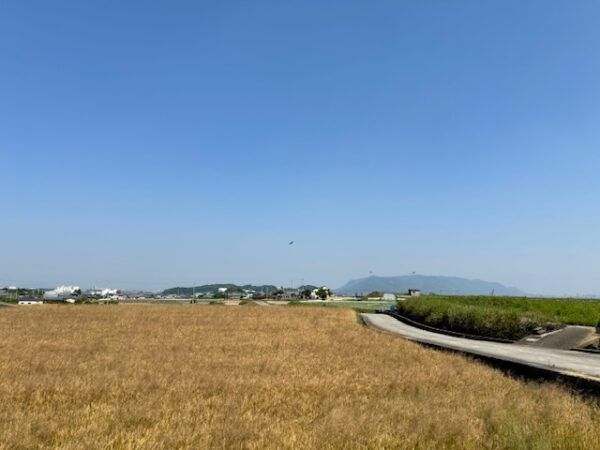
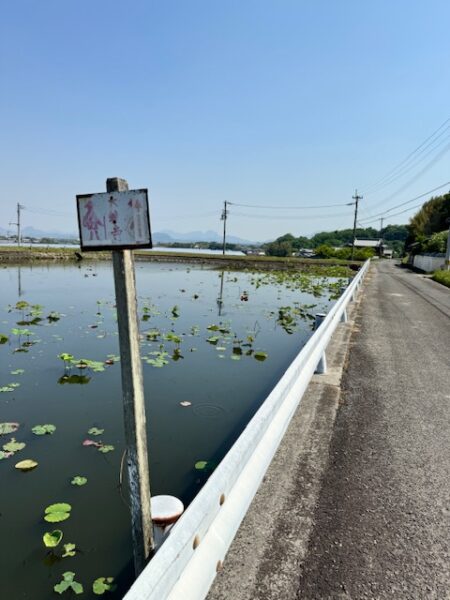
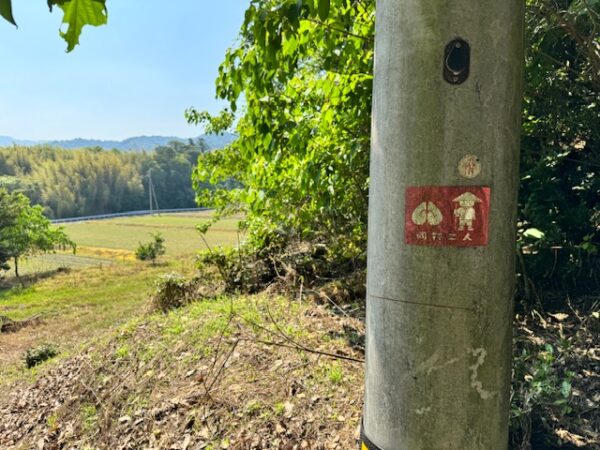
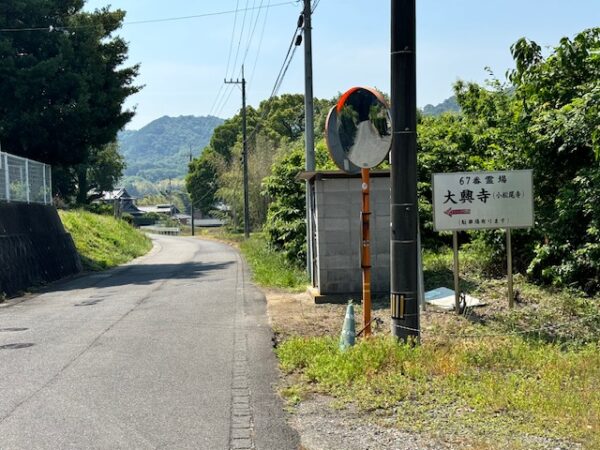
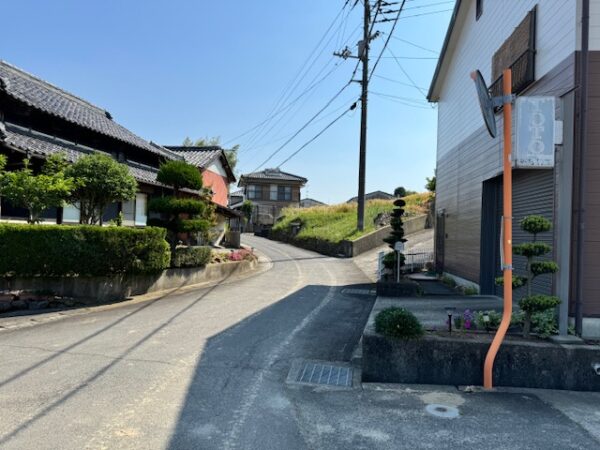
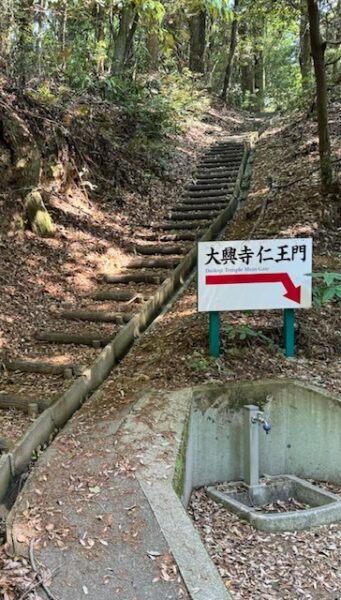
67 Daiko-ji
Temple of Great Growth
The temple is a blend of two Buddhist sects that co-exist on the grounds.
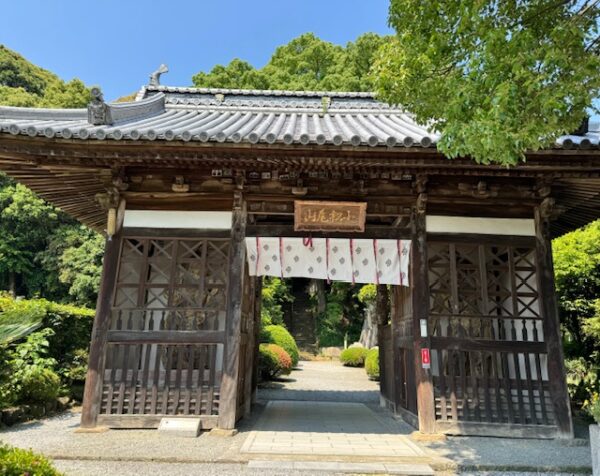
This is another gate that holds giant waraji (Japanese rope sandals) on the temple side and Nio guardian statues on the street side.
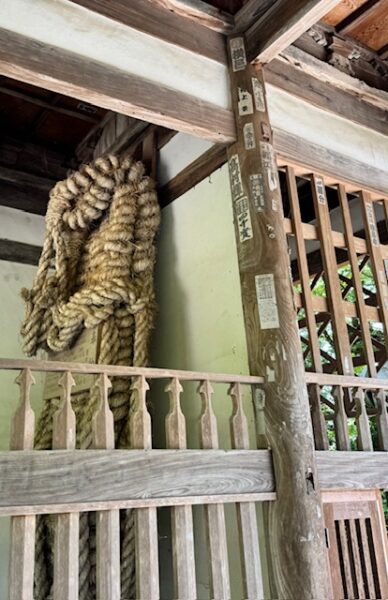
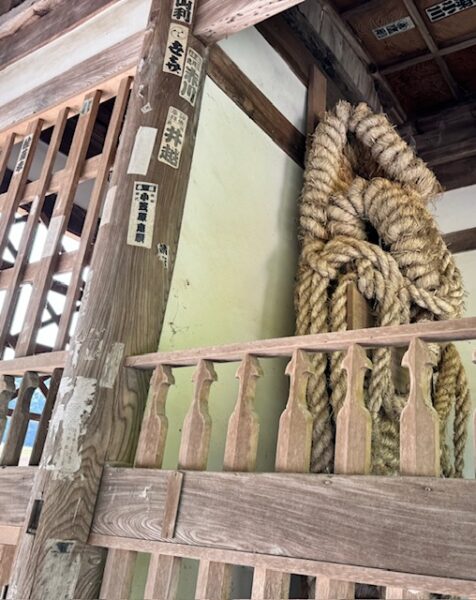
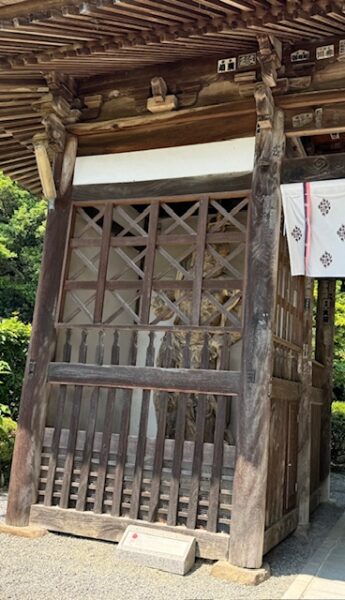
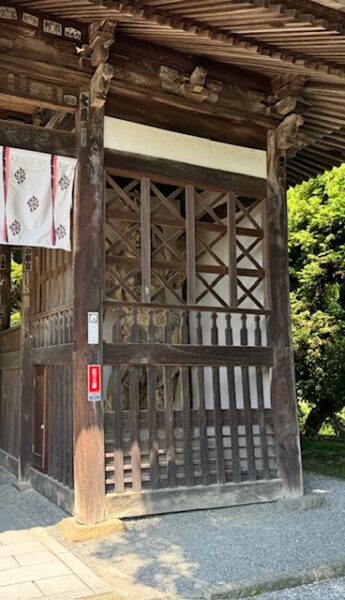
I could barely see the stone steps through the old, giant trees as I walked further onto the temple grounds.
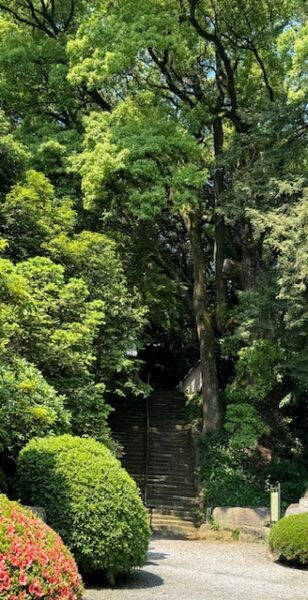
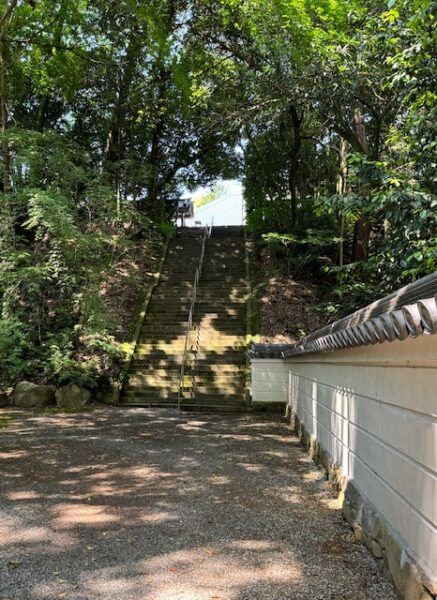

The steps finally revealed the height to which they ascended. Big camphor and nutmeg trees lined the steps on each side.
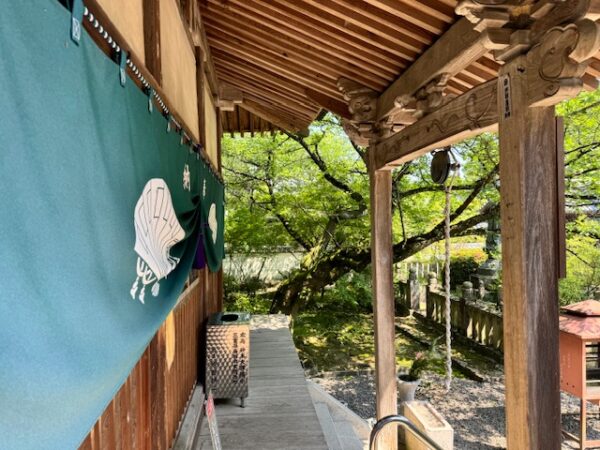
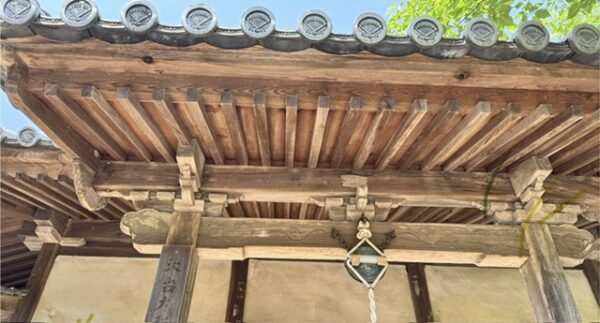
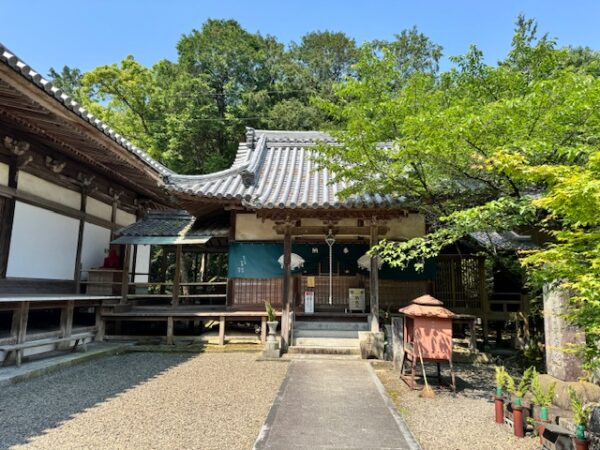
Daishido.
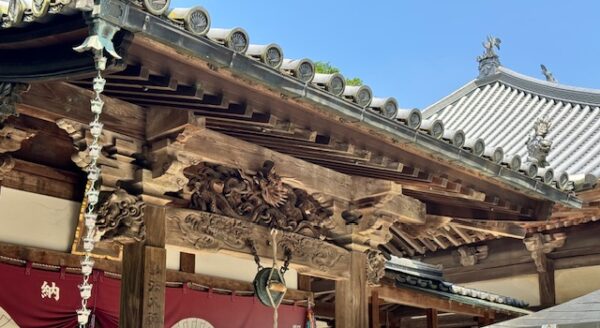
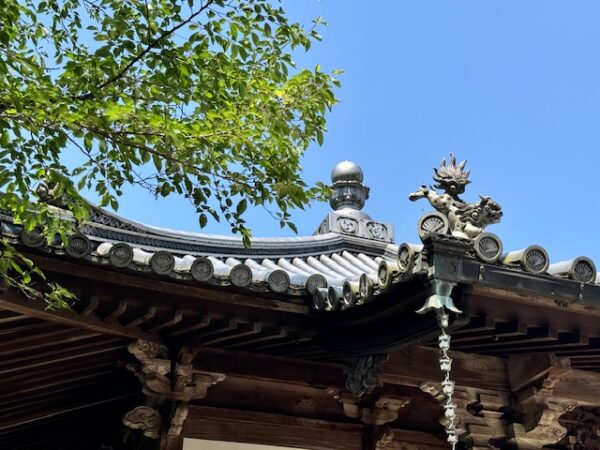
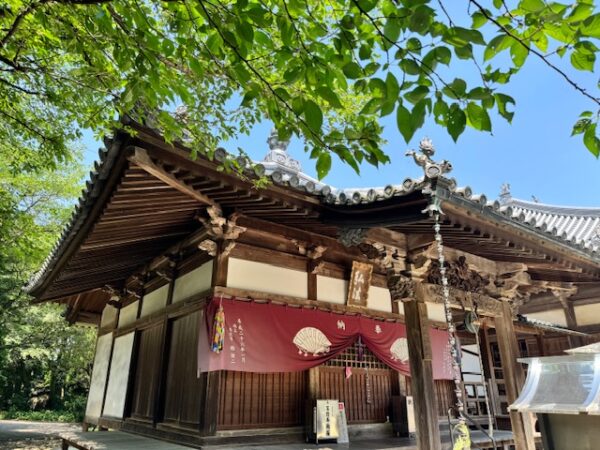
Hondo or main hall.
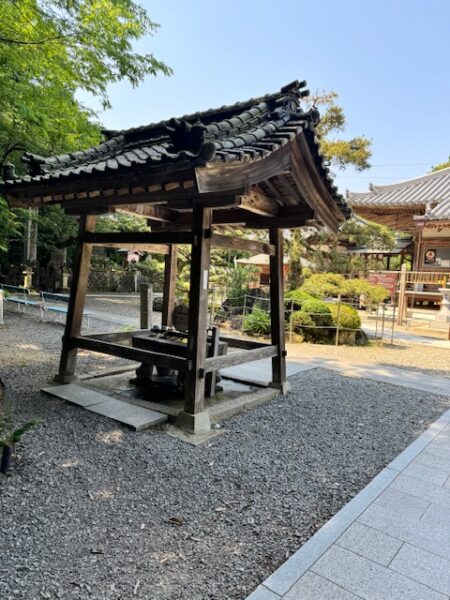
The temple fountain.
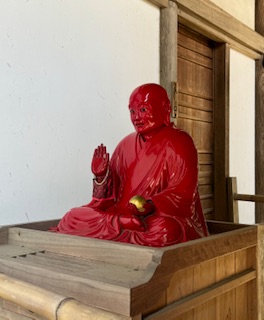
Another red Buddha figure.
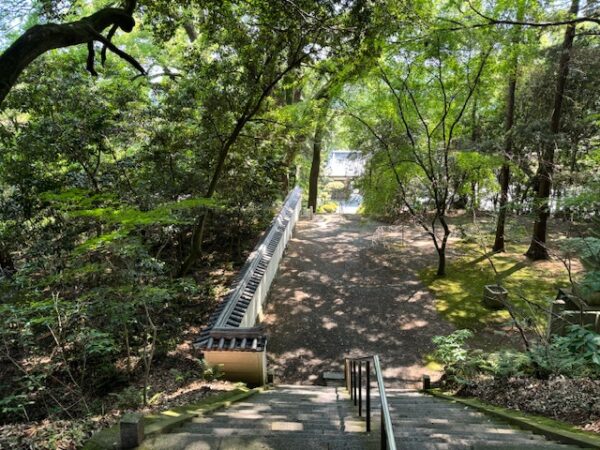
Leaving the temple grounds required walking down the steps.
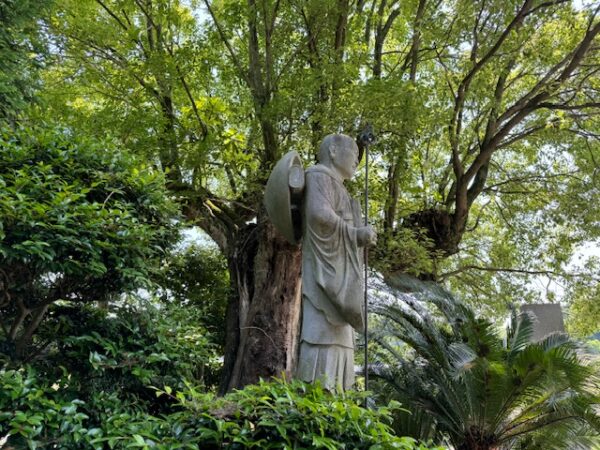
At the bottom, Kukai gives each visitor another look before he – or she – passes through the gate.
On to temple 68.
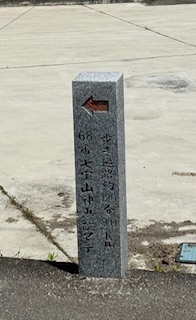
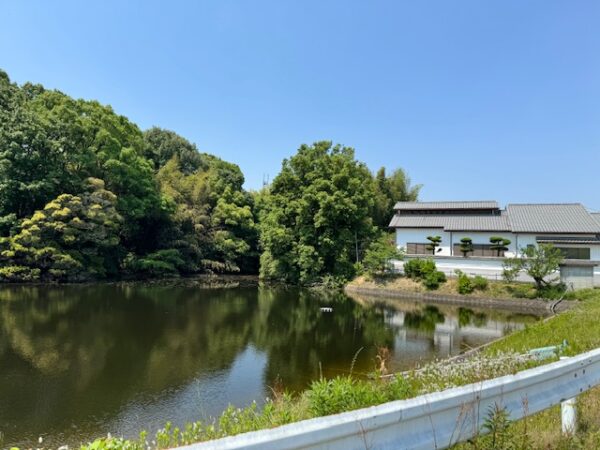
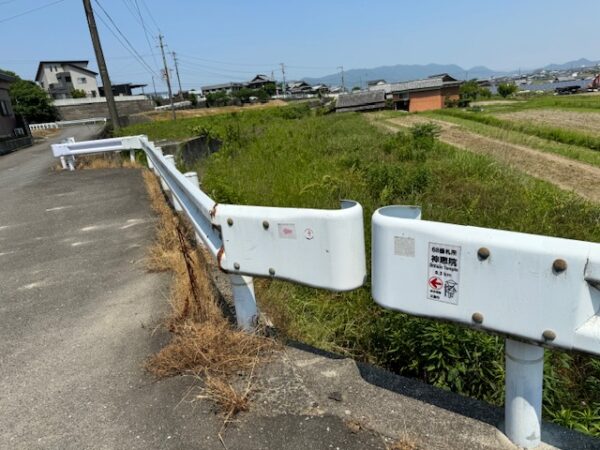
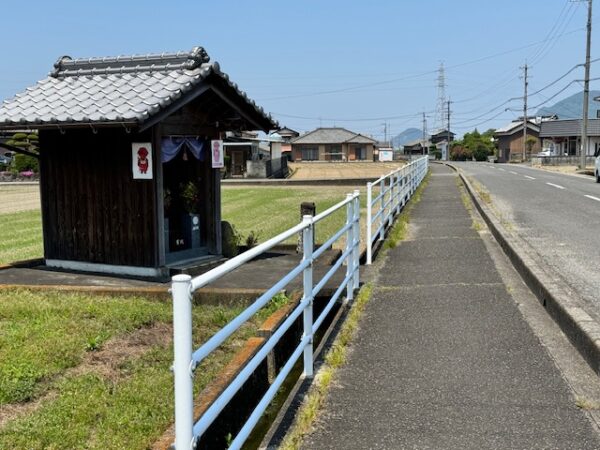
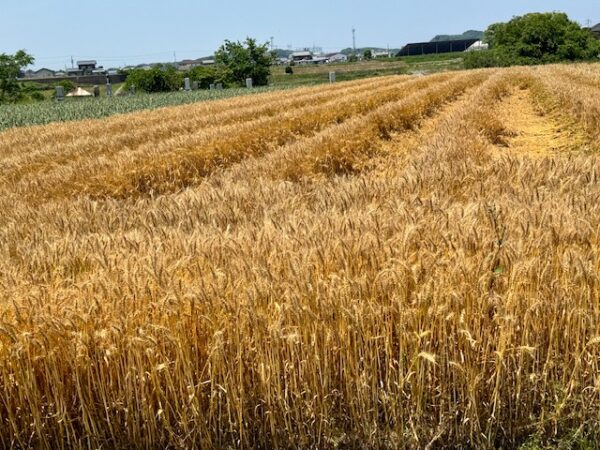
We Ladies Three
To begin is no more agony than opening your hand.
– June Jordan
These ladies insisted that I join them at their table. They were sitting outside under an awning. One woman remarked that I looked like I needed something cool to drink. I told them that I was ok, but they would not let me go. I finally accepted and drank a cup of tea while we talked. They asked me where I was from, if I was a solo henro, and if I was walking the entire pilgrimage.
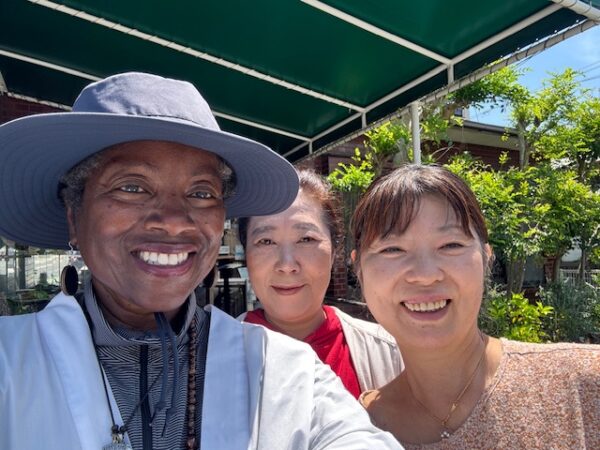
They were impressed when we discovered we were all around the same age. One was a year older than me. They were very much into women being strong and courageous. We all did a bodybuilder’s pose – flexed our biceps – then we agreed that we are just that!
Thank you ladies for the osettai: the drink, your caring company, and words of encouragement. 🌸
I walked on.
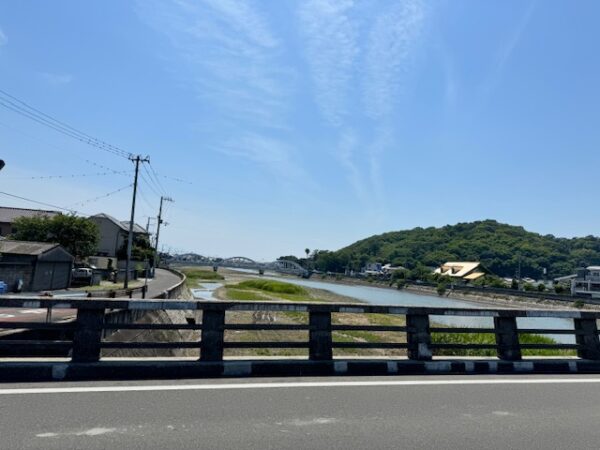
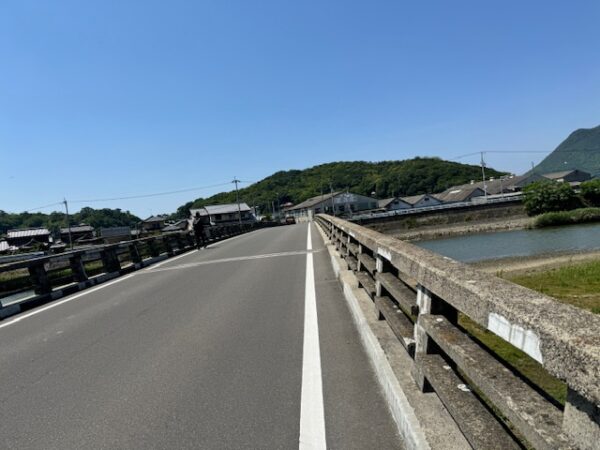
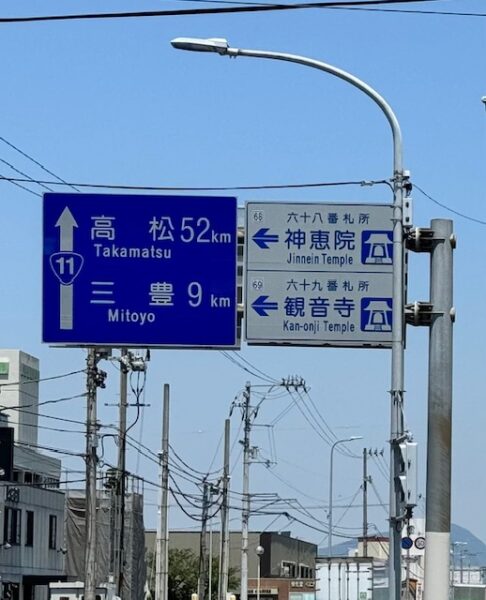
The street signs indicated that I was getting close. Temples 68 and 69 are located across from each other at the foot of Mt. Kotohiki.
Finally, the temple gate for both temples.
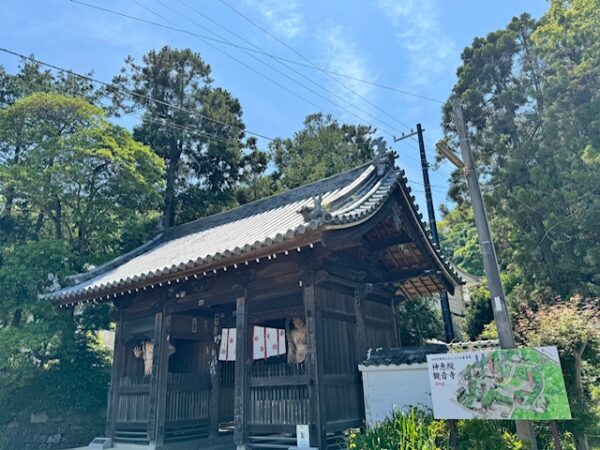
Closer.
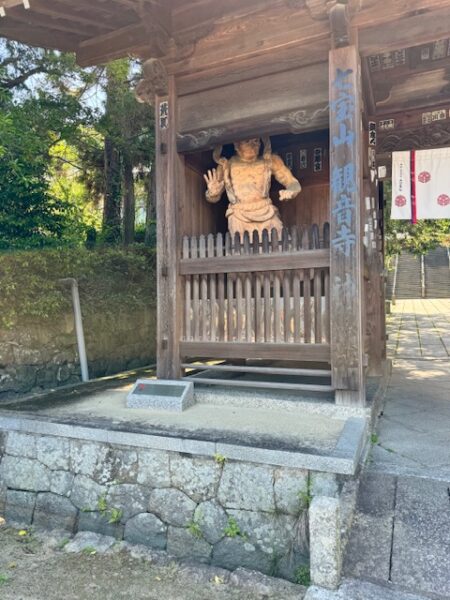
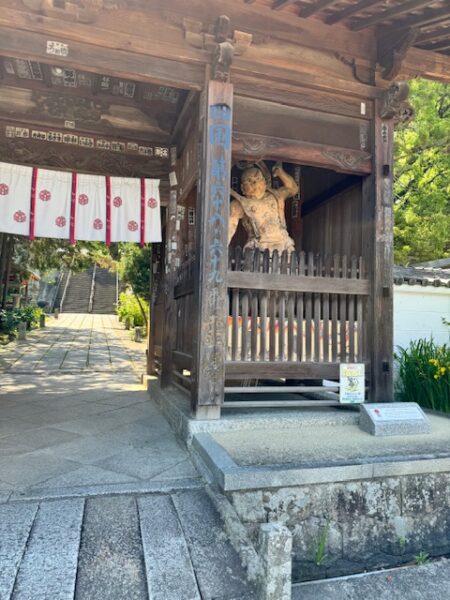
Closer.
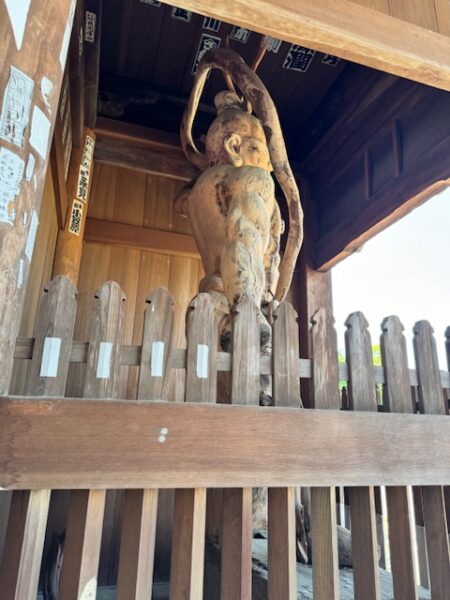
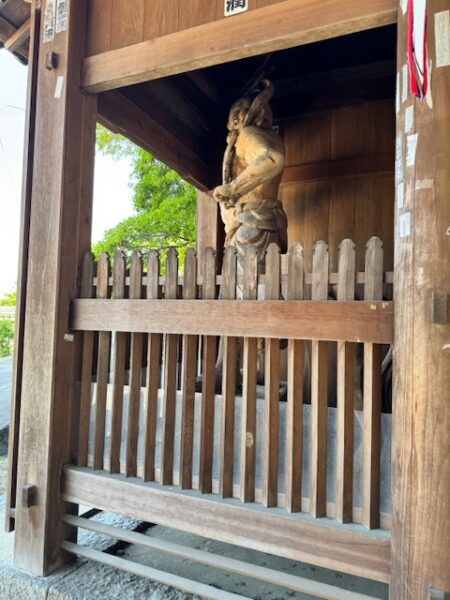
Steps ahead! There is no shortage of walking to get to the temples.
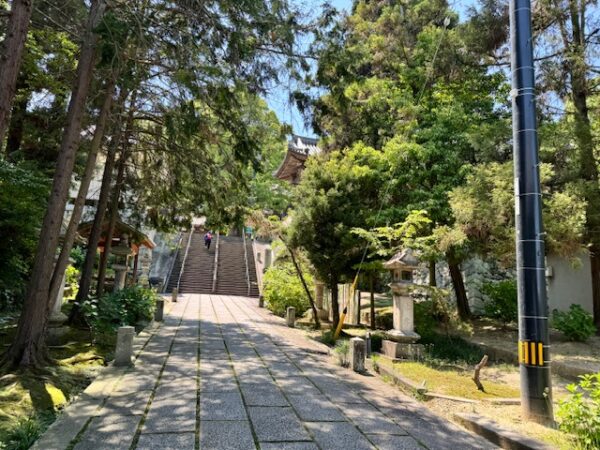
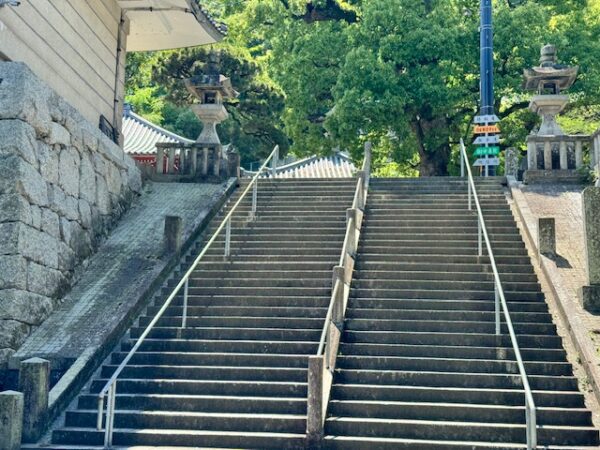
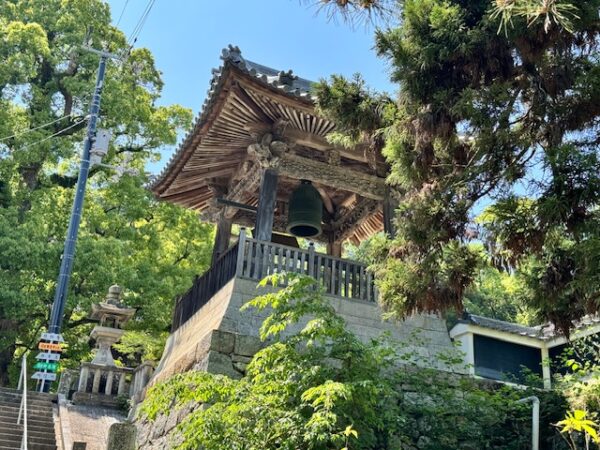
Bell tower.
At the top of the steps is a multitude of signs pointed to temple 68 to the left…
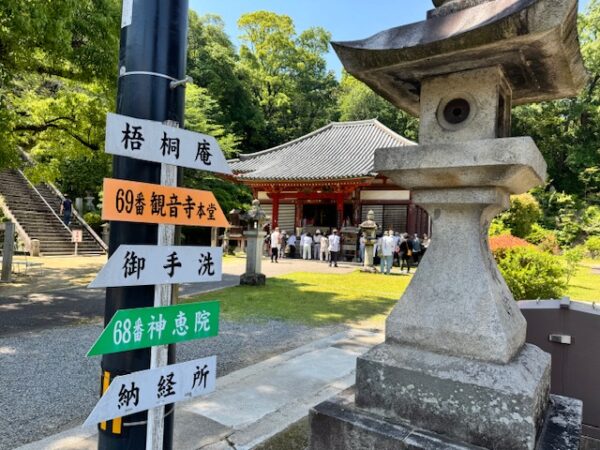
… and temple 69 to the right!
Goshuin
One office gives goshuin or stamps in the stamp books for both Jinne-in (T68) and Kannon-ji (T69).
68 Jinne-In
Temple of God’s Grace
The temple ground has been renovated numerous times The main hall was newly built in 2002.
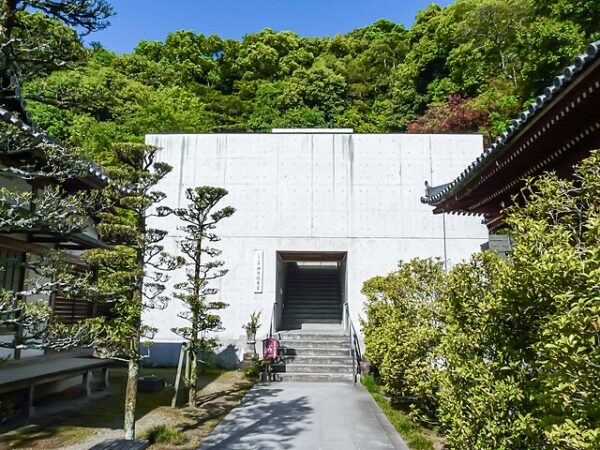
It is a modern structure made of concrete and white wood. I was distracted (unwanted company from a stranger!) and left the temple grounds without taking a photo, so here is one. (image source: naokijp)
Homotsukan (Treasure House) holds a number of temple treasures designated as National Important Cultural Properties, including a statue of the reclining Buddha. They are on public display two times a year.
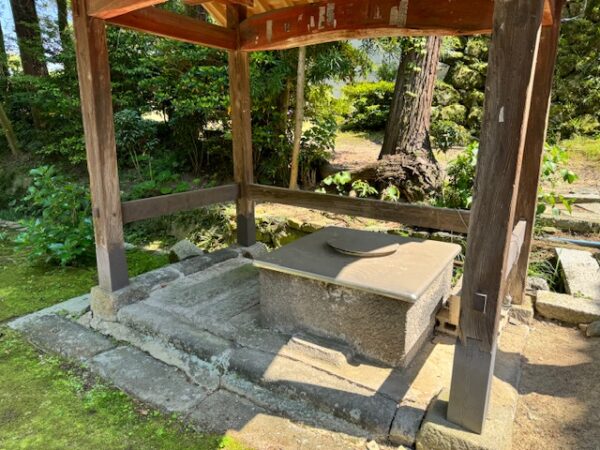
Closed for renovation? Maybe. Fountains are closed off, sometimes. It is hard to tell if it is temporarily or permanently off-limits.
Fortunately, here is another source for water.
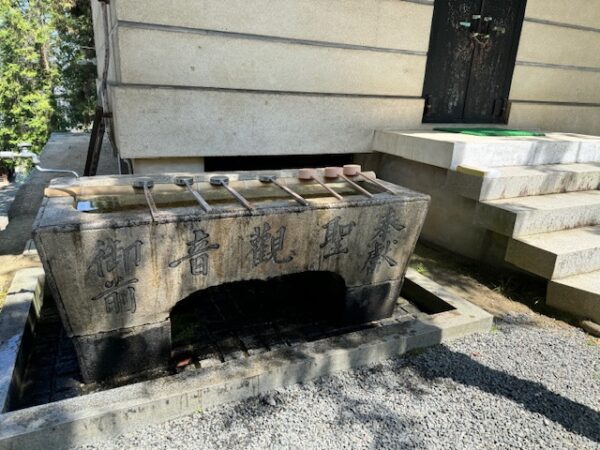
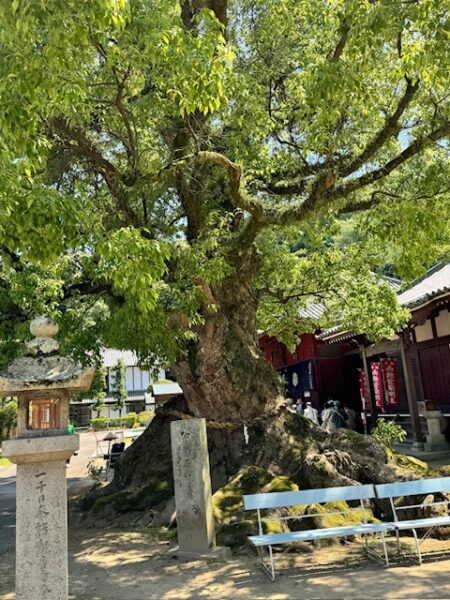
A sacred camphor tree planted by Kobo Daishi spreads its leafy wings over the temple grounds.
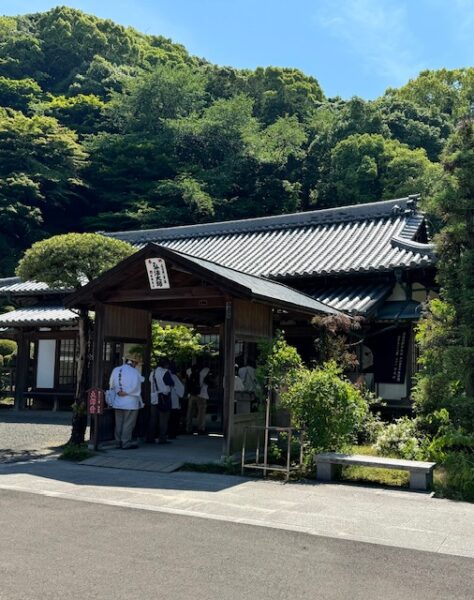
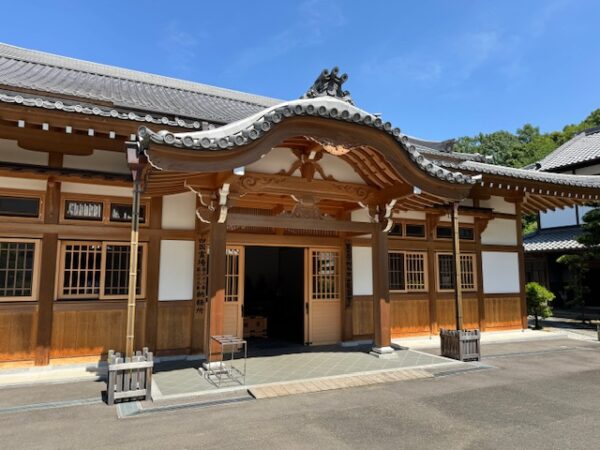
Some structures on the temple grounds are renovated in the old, traditional style.
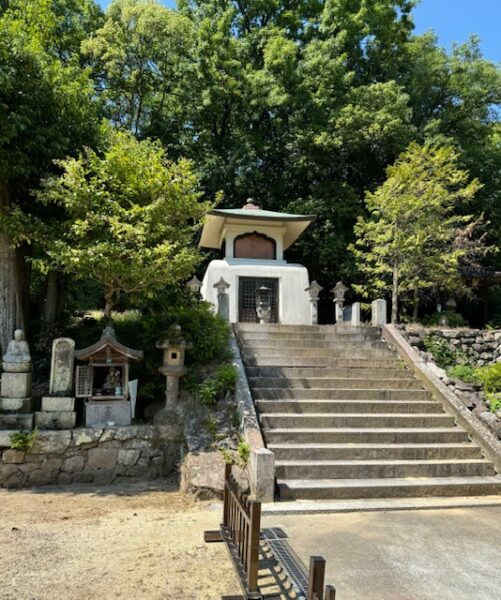
69 Kannon-ji
Temple of Kannon
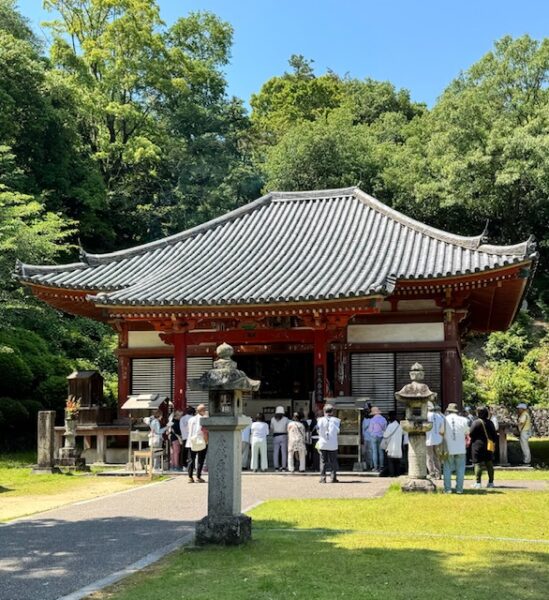
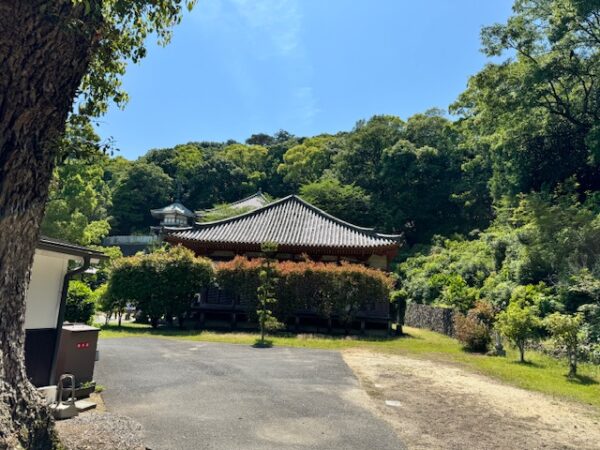
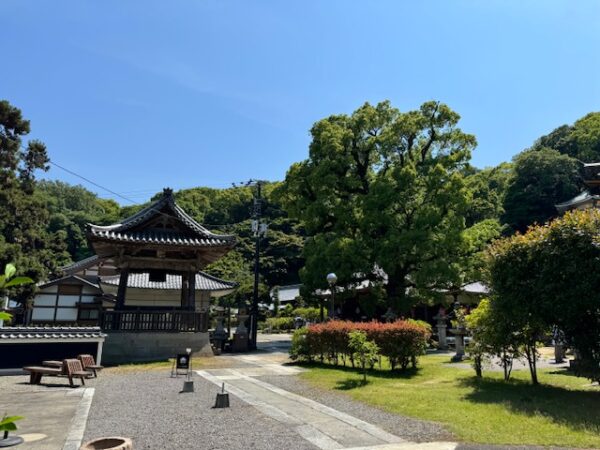
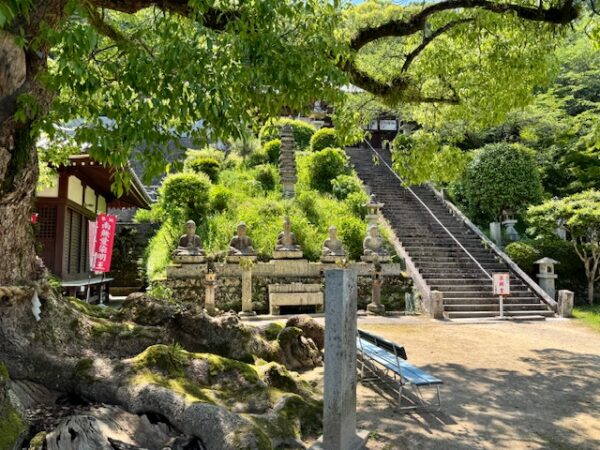
Two for one
The two temples are really on one property. Before the separation of Buddhism and the Shingon religion, the temple and shrine coexisted. At one time, shrine number 68 was the 68th stop on the pilgrimage. Temple 69 was right next door. The strife and crackdown on Buddhism by the Japanese government during the Meiji period attempted to separate the two religions and eliminate Buddhism. Those efforts did not work.
The result is the intermingled relationship of religions and renovated buildings on the same grounds. The 68th shrine became the 68th Buddhist temple with lingering Shingon influences. And the 69th is the 69th!
The history of these two temples and the renovation of temple 68 is much more involved. It is a fascinating story. I would like to study it further one day, but I simply view them as one temple with two names.
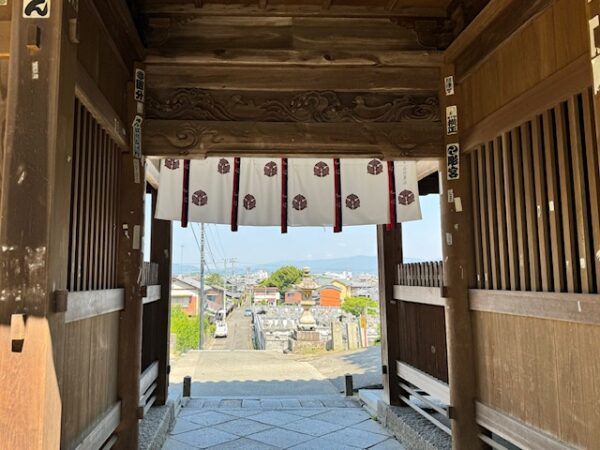
See you next time.
Baadaye and Mata Ne (またね)
Shirley J ♥️
This and several posts this summer will chronicle my pilgrimage in Japan where I am walking the 1200 kilometer-long Shikoku 88 temple pilgrimage. Read my announcement here.
I am excited, and I am here, still walking. And just know this, I will return to tell the tale!

T67-69
